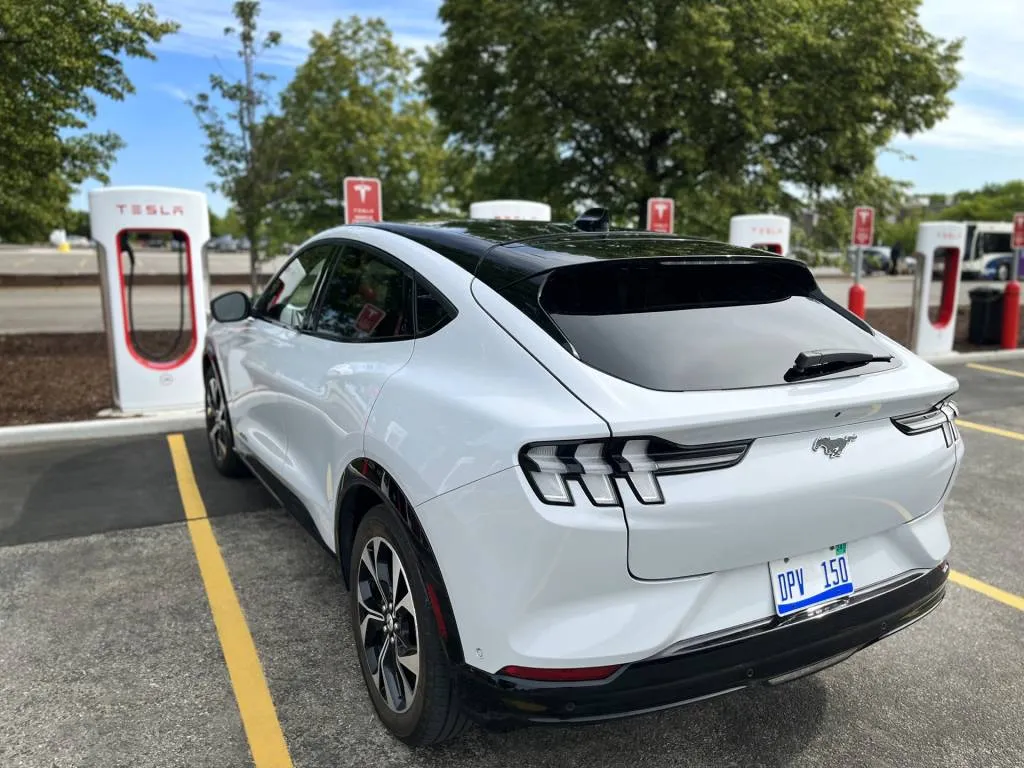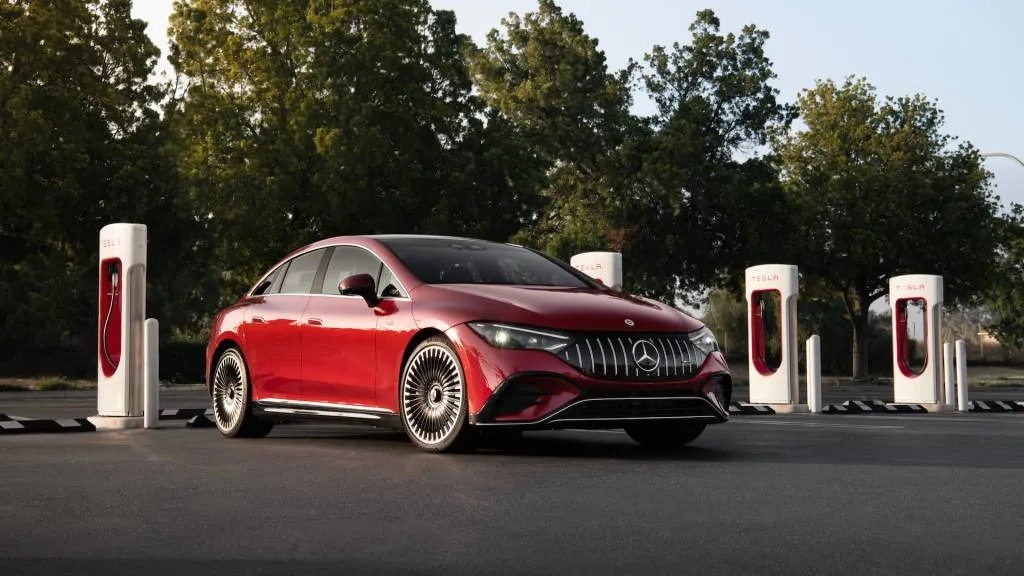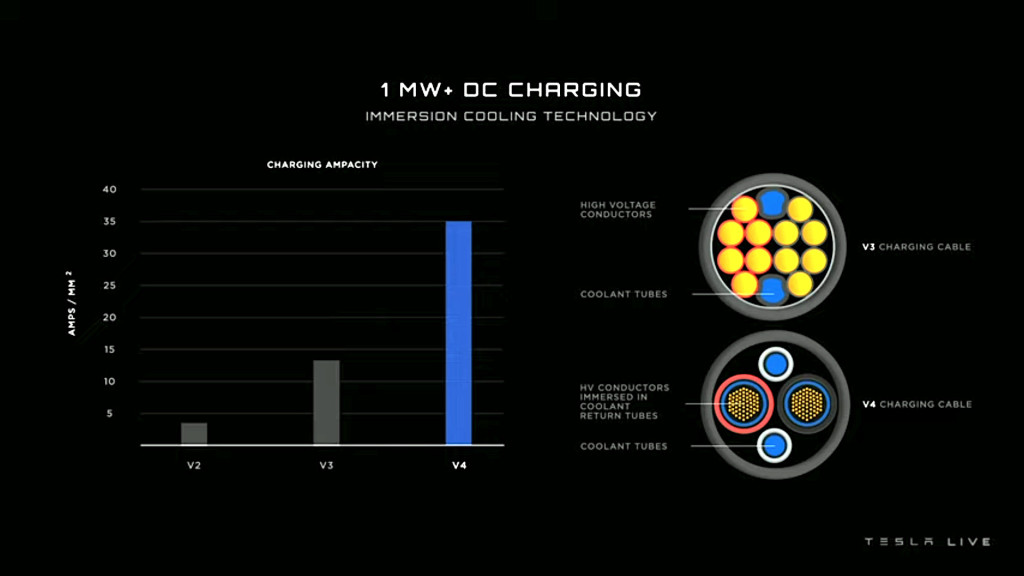Tesla’s North American Charging Standard (NACS) lags in locations versus the other road-trip fast-charging standards that have been used for EVs. But it is the future.
Months ago, earlier this year, that future was not at all apparent. But May 25 the tide turned.
That day, with a joint chat between Tesla CEO Elon Musk and Ford CEO Jim Farley, it was announced that Ford would adopt Tesla’s NACS connector in future EVs, starting in 2025, and that current Ford EVs would gain access to Tesla’s Supercharger network starting early 2024.

Ford Mustang Mach-E at Tesla Supercharger
The timing fit in with Ford’s future-product announcements, directly following a preview of the company’s Gen 2 EVs, including a three-row EV that would get 350 miles of range from around 100 kwh.
“This is a really big deal for our customers,” said Farley then, pointing to the ease of use of Tesla’s connector and the reliability of it.
Ford wasn’t the first to announce its allegiance to the Tesla port; that nod goes to California firm Aptera, which confirmed in November 2022 its three-wheeler would include only NACS. But Ford’s commitment was, for the auto industry, the turning point.

Mercedes-Benz AMG EQE sedan at Tesla Supercharger station
Since then, the cards fell quickly and decisively, with announcements seemingly made as soon as the ink dried rather than as part of product or EV ecosystem previews. Nearly all of the automakers announcing included similar details—with Supercharger access in 2025 and an adapter in early or mid 2024. Click through to the corresponding pieces below for details as other automakers committed to Tesla NACS:
General Motors – June 8
Rivian – June 20
Volvo – June 27
Polestar – June 29
Mercedes-Benz – July 9
Nissan – July 19
Fisker – August 16
Honda/Acura – August 22
Jaguar (but not Land Rover) – September 21
Holdouts that still might make the leap include Stellantis, Hyundai and Kia, and the entire Volkswagen Group (VW, Porsche, Audi, and more), all of which have said that they’re considering the standard. BMW (Mini and Rolls-Royce), Toyota/Lexus, and Lucid appear least interested at the moment, assessing remarks made along the way.
As Green Car Reports has pointed out before, Tesla’s V4 hardware will likely be able to handle EV models that charge at 800 volts at the full rate. As for Tesla’s V3 hardware and earlier—essentially all North American hardware available on the Supercharger network at this time—those will always be limited to 400 volts or a bit higher.

Tesla Supercharger V4 cable, for up to 1 megawatt
GM’s eagerness to sign up for NACS, considering that latter point, still remains a puzzle, as the GMC Hummer EV, Chevrolet Silverado EV, and other upcoming large, 800-volt-charging vehicles with huge battery packs depend on 800 volts to keep road-trip charging times reasonable.
That said, Tesla’s deployment of V4 might happen rapidly enough to ease those qualms if Cybertruck deliveries are as close around the corner as recent rumors and photos appear to suggest.

